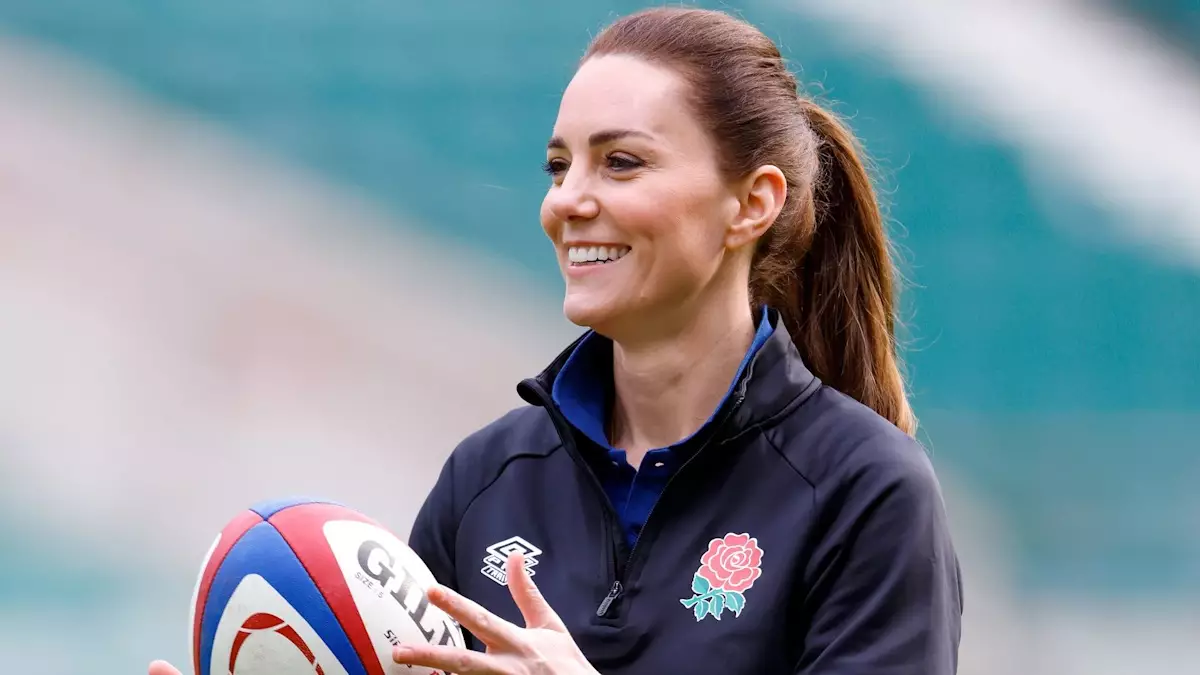In today’s society, the image of physical fitness often revolves around visible abs and sculpted physiques. However, true strength transcends superficial appearances. The recent discovery of Princess Kate’s participation in an intense fitness move during her 2016 visit to Edinburgh serves as a compelling reminder that core strength is multifaceted, powerful, and essential for overall well-being. Her ability to hold a challenging V-sit position with ease demonstrates an impressive level of functional strength, something that many fitness enthusiasts overlook in favor of isolated exercises. This incident invites us to reconsider what it means to be truly fit, emphasizing the importance of holistic, functional training over purely aesthetic pursuits.
The Hidden Dimensions of Core Stability
The misconception prevalent among many women, especially those over forty, is that core training is solely about achieving a flat stomach or six-pack abs. Instead, core stability is a complex web of interconnected muscle groups—ranging from the transverse abdominals to the hips and lower back—that work synergistically to support daily activities, posture, and injury prevention. Princess Kate’s proficiency in maintaining her position not only underscores her physical capability but also highlights her awareness of this core complexity. Developing such strength involves engaging multiple muscle groups through compound movements like squats and planks, which are often underrated. These exercises provide a solid foundation that enhances functional movement, mobility, and resilience, especially as women age.
Challenging Common Misconceptions About Women’s Fitness
For women nearing or past their middle years, especially those who have experienced pregnancy, the quest for core strength can sometimes be fraught with misunderstandings. The popular obsession with abdominal crunches as the primary method of core development is misguided. As Nancy Best—personal trainer and founder of Ladies Who Crunch—points out, efficient core training is holistic. It involves resilient exercises that not only target the “six-pack” muscles but also stabilize the pelvis, improve posture, and support lower back health. Females, particularly after childbirth, should prioritize functional movements that foster anti-rotational and rotational stability, which prevent common ailments like lower back pain. Princess Kate’s example signifies that persistent, well-rounded training yields dividends that extend far beyond the mirror.
The Power of Mobility and Functional Movement
Achieving and maintaining such remarkable core strength requires more than just performing exercises; it demands mobility and flexibility. Kate’s ease in holding her position indicates well-developed hip flexors, hamstrings, and shoulders—areas often neglected in traditional workouts. Advocates of functional fitness emphasize that enhancing these mobility aspects prevents stiff joints, reduces soreness, and ensures effortless movement during everyday life. This comprehensive approach to fitness involves integrating dynamic exercises and flexibility work into routines, ultimately leading to a more resilient body—one capable of standing up to the wear and tear of aging, pregnancy, and physical challenges.
Empowering Women Through Holistic Fitness
Contrary to superficial trends, promoting core stability is a lifelong investment. Women in their forties and beyond must view fitness as a tool for empowerment—an essential component to tackle subtle health issues like lower back niggles or poor posture. Kate’s demonstrated ability to engage her core in a demanding position aligns with a broader message: strength is inclusive, accessible, and critical for women of all ages. Building a resilient core is not about fleeting aesthetic goals but about cultivating a foundation that promotes vitality, functional independence, and confidence. The key lies in embracing diverse movement patterns, prioritizing mobility, and viewing fitness as an ongoing journey rather than a fleeting phase.
This perspective shifts the paradigm, urging women to redefine strength not merely as a visual attribute but as a powerful, functional entity that enhances every aspect of life. Princess Kate’s example, whether intentional or not, encapsulates the essence of modern fitness—holistic, accessible, and undeniably empowering.

